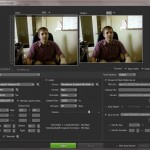Creating Web Identity for Ministry
For the past 20 years, our team has envisioned and created web communities around the globe, as a part of our ministry and in helping churches and Christian organizations build their internet brand and web identity. Here are just several examples:
- Missionary video sharing website (WorldMissions.TV)
- Social network community for the Church of God (ourCOG.org)
- Networking platform for Biker Churches (BikerChurch.US)
- Bulgarian Evangelical Church of God in Chicago (BGnewLIFE.com)
- LaFrance Church of God (LaFranceCOG.com)
- Bulgarian Christian Church in Las Vegas (LasVegasChurch.TV)
Furthermore, we have contributed to various churches and organizations through:
- Hosting our annual X Event for youth exploring the role of internet for youth and youth ministries in the 21st century
- Lecturing on WebMinistry 2.0 for Churches at the Leadership Development Institute
- Guest speaking at the BibleTech conference organized by Logos Bible Software
- Publications on web branding for churches and non-profit organizations
In the country of Bulgaria alone, our team envisioned and created the largest Bible internet community with:
- Dedicated Bible Study website (Bibliata.com)
- Christian video sharing community (Bibliata.TV)
- Bulgarian Christian social network (Bibliata.net)
- Bulgarian Video Bible (Bibliata.mobi)
See also how we help churches grow through:
Consulting and Coaching
Empowered by the vision for a continuous revival within the church of the 21st century, we have chosen to make the mission of our work this one statement: We help churches grow.
One of the approaches we have taken to accomplish this ministry goal is Consulting and Coaching:
- We have successfully worked with over 50 churches toward their effective missions programs and growth through (1) leadership training and team building seminars, (2) in-depth case study of church and ministry evaluations and (3) implementing individually designed strategies for ministry development
- Currently, our team provides continuous education to over 200 church leaders and ministry teams around the world through teaching and lecturing on a weekly basis along with daily prayer support
- We extend our efforts toward church growth by helping build strong family connections through relations counseling and parenting classes implementing play therapy as Board Certified LPC
Beside personal presence and team building strategies, we implement the media in virtually every approach of ministry. We have published several research monographs as well as film series about our ministry work. Our team holds a weekly TV program called the Bible Hour. (Learn how we help churches build their own and unique web presence)
See also how we help churches grow through:
Research and Teaching
May 1, 2012 by Cup&Cross
Filed under Featured, Media, News, Publication, Research, Video, What we do
Empowered by the vision for a continuous revival within the church of the 21st century, we have chosen to make the mission of our work this one statement: We help churches grow.
One of the approaches we have taken to accomplish this ministry goal is Research and Teaching:
- Our historical research through the years has examined the archives of leading Pentecostal movements like the Church of God and Assemblies of God, British and Foreign Bible Society Archives at Cambridge University, Harvard University Archives, Southern Baptist Historical Archives, Graduate Theological Union at Berkeley, as well as various original Bulgarian and Russian sources
- In the area of chaplaincy we have worked with various government agencies, US Army commanders, NATO chaplains and Special Forces representatives in establishing the Bulgarian Chaplaincy Association comprising over 100 active Bulgaria chaplains and founding the first ever Masters’ in Chaplaincy Ministry Program in Europe
Beside personal presence and team building strategies, we implement the media in virtually every approach of ministry. We have published several research monographs as well as film series about our ministry work. Our team holds a weekly TV program called the Bible Hour. (Learn how we help churches build their own and unique web presence)
See also how we help churches grow through:
Evangelism and World Missions
Empowered by the vision for a continuous revival within the church of the 21st century, we have chosen to make the mission of our work this one statement: We help churches grow.
One of the approaches we have taken to accomplish this ministry goal is Evangelism and World Missions:
- We have ministered for over 30 years now on three continents, 25 U.S. states, Canada and Mexico (Map of our global ministry)
- We have spent seven consecutive years in missionary work in Bulgaria ministering to over 300 local congregations (Map of our ministry in Bulgaria)
- Since 1990, we have helped in the planting and team training of over 25 churches in Bulgaria as well as the Bulgarian congregations in Chicago, Houston, Las Vegas, San Francisco, Atlanta, London, Spain, Cyprus and Palma de Mallorca
Beside personal presence and team building strategies, we implement the media in virtually every approach of ministry. We have published several research monographs as well as film series about our ministry work. Our team holds a weekly TV program called the Bible Hour. (Learn how we help churches build their own and unique web presence)
See also how we help churches grow through:
Video Bible in Bulgarian
The Video Bible project in Bulgarian was originally envisioned in 2008 by the Cup & Cross ministry team as a result of two consecutive endeavors. The first was the finalization of a vision for the Bulgarian Bible on the internet, which began in 1996 and continued in the next decade resulting in the development of Bibliata.com – a web community for Bulgarian and Slavic speaking Christians around the world. The second one was the Bibliata.TV web project released in 2007-2008 after a wide variety of oppositions ranging from purely technical to religious and political aspects.
Once Bibliata.TV had established its permanent place in the internet it grew fast to become one of the most successful interactive media projects in Bulgarian history. Currently, the project hosts over 11,000 original Christian videos uploaded by some 1,200 registered members. It provides a web platform for daily religious broadcast for some two dozen of Bulgarian churches and ministries active around the globe and in 2008 became the home of the Bulgarian Video Bible.
This last ambitious project of the Cup & Cross ministry team undertook the difficult task to recreate the Bible in video format one chapter at a time. Churches, ministers and lay people were asked to record a favorite portion of the Bible as a video and upload it to Bibliata.TV. Currently 6,672 videos are already completed. They can be all seen at: http://video.bibliata.tv/. The anticipated release date of the Bulgarian Video Bible is 1.11.2011.
Leadership Development Seminar 2011
Broadcast Your Church Services for Free
Learn how to broadcast your church service or team training event on the internet
Examine several available options to broadcast with a special accent on the free version of uStream.TV.
Chose and set up proper camera and audio source for the broadcast
Broadcast from your computer, notebook or even your cell phone
Publish your church services as a LIVE stream on the internet and organize them in an internet based video archive
Embed LIVE broadcast or video recording on your church website or pastor’s blog
Publicize your streaming event or video recording using the social networks
Monetize your broadcast and contribute to your church media ministry fund
Power of Pentecost
Just in Time
I Shall Wear a Robe and a Crown
I Shall Wear a Robe and a Crown (MP3)











